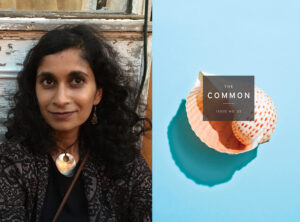MICHAEL MERCURIO interviews BRIONNE JANAE

In conversation, they go by Breezy. When Michael Mercurio and Brionne Janae spoke via Zoom, Breezy was at home in Brooklyn, and Michael was in Northampton, Massachusetts. Though Michael had known Breezy’s work for several years through their publications in Ploughshares, Waxwing, Frontier Poetry Review, The Sun, The Rumpus, and The Academy of American Poets Poem-A-Day, they hadn’t met until they worked together on a program for the Tell It Slant Poetry Festival, cohosted by the Faraday Publishing Company and Black Writers Read. Here, they talk about musicality, authenticity, and the importance of bringing voice to what might be left unsaid. (Please note this interview discusses childhood sexual abuse and trauma.)














 .
.